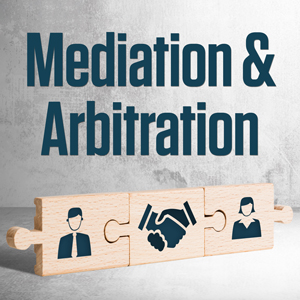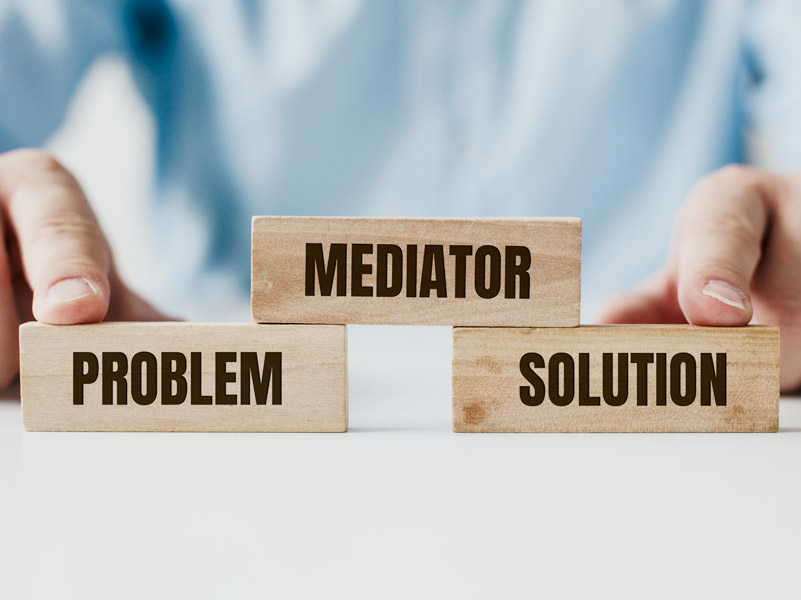In the realm of conflict resolution, two prominent pathways often diverge: mediation and litigation. While both aim to resolve disputes, the methodologies and outcomes they offer stand in stark contrast. In this discourse, we delve into the virtues of mediation, illuminating its prowess in saving money, time and most importantly, fostering consensus among conflicting parties.
The Cost-Effective Alternative
Litigation is notorious for its exorbitant costs, often draining financial resources and exacerbating tensions between disputants. Legal fees, court expenses, and prolonged proceedings can quickly escalate, leaving both parties financially burdened and emotionally exhausted.
In contrast, mediation presents a cost-effective alternative. By engaging a neutral mediator, parties can sidestep the hefty expenses associated with traditional litigation. Mediation typically involves fewer procedural formalities and can be completed in a fraction of the time required for a court trial. This streamlined approach translates into substantial savings, making mediation an attractive option for individuals and businesses alike.
A Time-Efficient Solution
Time is a precious commodity, especially when embroiled in a legal dispute. Litigation, with its protracted timelines and unpredictable delays, often prolongs the agony of unresolved conflicts. Court schedules, legal procedures and backlog issues can drag cases on for months or even years.
Mediation offers a respite from the time-consuming labyrinth of litigation. With flexible scheduling and expedited resolution processes, mediation enables parties to address their grievances swiftly and efficiently. By bypassing the complexities of courtroom proceedings, disputants can reclaim control over their timelines and expedite the journey towards resolution. In today’s fast-paced world, where time is of the essence, the efficiency of mediation cannot be overstated.
Fostering Consensus and Preserving Relationships
Beyond its cost and time-saving advantages, mediation excels in cultivating consensus and preserving relationships. Unlike litigation, which often perpetuates an adversarial dynamic between parties, mediation encourages collaboration and dialogue. A skilled mediator facilitates open communication, guiding disputants towards mutually beneficial solutions while preserving dignity and respect.
By focusing on interests rather than positions, mediation empowers parties to explore creative solutions that address underlying concerns and interests. This collaborative approach fosters a sense of ownership over the resolution process, enhancing the likelihood of compliance and long-term satisfaction. Moreover, mediation offers a confidential environment conducive to honest dialogue, enabling parties to express their needs and concerns without fear of reprisal.
The Power of Self-Determination
Central to the appeal of mediation is its emphasis on self-determination. Unlike litigation, where decisions are imposed by a judge or jury, mediation empowers parties to craft their own solutions based on their unique circumstances and priorities. This autonomy engenders a sense of empowerment and accountability, fostering a more sustainable and satisfactory resolution.
Furthermore, the flexibility of mediation allows for the incorporation of creative remedies that may not be available through traditional legal channels. From apology letters and community service to customized payment plans, the possibilities for resolution are limited only by the imaginations of the parties involved. This flexibility extends beyond the immediate dispute, laying the groundwork for future collaboration and conflict resolution.
Conclusion
In the arena of conflict resolution, mediation stands as a beacon of hope, offering a compelling alternative to the adversarial rigors of litigation. By saving money, time and fostering consensus among conflicting parties, mediation transcends mere dispute resolution, paving the way for reconciliation and renewal. As we navigate the complexities of a rapidly evolving world, the virtues of mediation serve as a testament to the transformative power of dialogue, collaboration and empathy. In choosing mediation over litigation, we embrace not only a more efficient and cost-effective approach to conflict resolution but also a pathway towards enduring harmony and understanding.
The Georgia Center for Arbitration and Mediation (“GCAAM”) is a great resource for all of your business, real estate, contraction, and other legal disputes. Our third-party neutrals are professionals with decades of experience. Contact us today to help resolve your legal matters quickly and cost-effectively. Click here to contact us or to learn more about our services or our experienced mediators and arbitrators.













